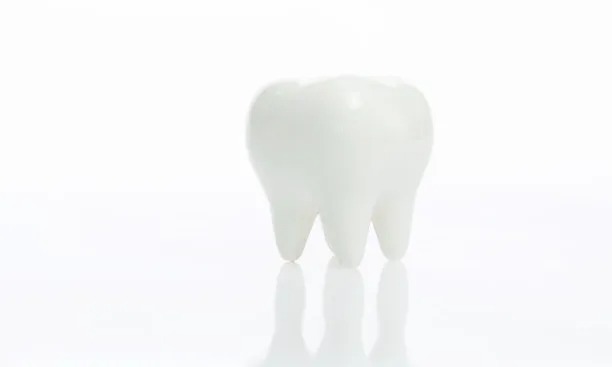Summary: Dental filling procedures are essential for maintaining oral health, especially when cavities or damage occur. Before undergoing such procedures, individuals must prepare adequately to ensure a smooth experience. After the filling, proper care is crucial to prevent complications. This article outlines four essential precautions to take before and after dental fillings, focusing on consultation with a dentist, personal oral hygiene, dietary adjustments, and understanding the recovery process. Each aspect provides important insights to maximize the benefits of dental fillings, ensuring optimal oral health for patients.
1. Importance of Dental Consultation Before Procedures

Before getting a dental filling, scheduling a comprehensive consultation with your dentist is paramount. This visit allows the dentist to examine your affected tooth thoroughly and assess the extent of the damage. The dentist can recommend the type of filling material that would best suit your dental health and lifestyle.
During the consultation, it’s essential to disclose any allergies, existing medical conditions, or medications you are taking, as these factors can influence the filling procedure. An open conversation can help prevent potential adverse reactions and ensure your safety during the treatment.
Additionally, ask about the procedure itself, including the steps involved and what to expect afterward. Understanding the process can alleviate anxiety and set you up for a smoother experience on the day of the filling.
2. Maintaining Oral Hygiene Pre-Procedure
Good oral hygiene before getting a filling is crucial for ensuring the procedure’s success. Consider brushing and flossing your teeth thoroughly to minimize any bacteria present in your mouth. This practice helps reduce the risk of infection during and after the procedure.
Furthermore, using an antibacterial mouthwash can significantly assist in cleaning your mouth more effectively. Rinsing with mouthwash can help eliminate bacteria and ensure that your oral cavity is as clean as possible before the dentist begins the filling process.
It is also advisable to avoid consuming sugary foods or beverages leading up to your dental appointment. This measure helps in preventing additional decay, making it easier for the dentist to perform the filling without distractions from other dental concerns.
3. Dietary Adjustments After Receiving Dental Fillings
After you have received your dental filling, your body needs time to adjust and heal. Initially, it is wise to avoid hard, crunchy, or sticky foods that could dislodge the filling or cause discomfort. Instead, opt for soft foods like yogurt, mashed potatoes, or soup for the first few days after your procedure.
Additionally, refrain from consuming extremely hot or cold foods and beverages immediately after getting the filling. Your tooth may be sensitive, and temperature variations could lead to discomfort or pain. Gradually reintroducing these foods into your diet can help gauge how your tooth responds without causing unnecessary stress.
Staying hydrated is equally essential, so make sure you’re drinking plenty of water. This practice helps with overall oral health and keeps your mouth clean, encouraging faster healing and preventing complications.
4. Understanding the Recovery Process Post-Filling
Being aware of what to expect during the recovery phase is critical for managing your oral health after a dental filling. Patients often experience slight sensitivity around the filled tooth for a few days following the procedure. This sensitivity is typical and should subside within a few days. However, if the discomfort persists or worsens, contacting your dentist is advisable.
Moreover, it’s essential to recognize when to return for a follow-up visit. Your dentist may want to check the filling and the surrounding tooth structure to ensure everything is healing correctly. Make sure to schedule and attend this appointment for the best possible outcome.
Finally, continue practicing excellent oral hygiene habits after getting your filling. Regular brushing, flossing, and using mouthwash will help maintain your dental health and preserve the integrity of your filling, ensuring it lasts as long as possible.
Summary:
In conclusion, following essential precautions before and after dental filling procedures significantly contributes to optimal oral health. By prioritizing dental consultations, maintaining oral hygiene, making dietary adjustments, and understanding the recovery process, patients can enhance their experience and ensure the longevity of their fillings.
This article is compiled by Vickong Dental and the content is for reference only.
Vickong Dental
Vickong Dental is a large medical group established in Hong Kong in 2008 by professors from well-known medical universities in Guangdong and Hong Kong, as well as medical doctors from key national '985' universities (including Master's supervisors and senior professors). The chain of branches brings together expert dentists with PhDs and Master's degrees from Hong Kong and Mainland China, committed to providing high-quality dental treatment.
"Vickong Dental Practices the University Motto of 'Healing and Serving Society,' with a Stable Operation for Sixteen Years. It Has Been honored with Hong Kong Enterprise Leaders's Choice,' and is a Global Trusted Implant Center for the Nobel Implant System. Recommended by Hong Kong Metro Broadcast and Guangdong Television, it Serves Customers from Over Thirty Countries and Regions, Gaining the Trust and Favor of Citizens from the Guangdong-Hong Kong-Macau Greater Bay Area and Surrounding Cities.

Thousands of customers' unanimous praise
The most recognized and highly recommended dental service by customers in the Guangdong-Hong Kong-Macau Greater Bay Area
We Ensure You Receive Detailed Care and Attention Here
Hong Kong standards, Shenzhen prices, Your Trusted English-speaking dentists

Vickong Dental Medical-Grade Instrument Disinfection Process
Vickong Dental Medical-Grade Instrument Disinfection Process

Vickong Dental Chain: A Warm and Comfortable Environment for Treatment






Appointment Hours

Q&A
Why choose Vickong Dental?
Vickong Dental practices the university motto 「Medicine to Benefit Society」, with each branch bringing together highly qualified dentists with doctoral and master’s degrees from Hong Kong and the Mainland, and has maintained seventeen years of steady operation。Recipient of 「2024 Hong Kong Enterprise Leaders Brand」, 「2025 Hong Kong Enterprise Leaders Brand」, a Nobel Biocare Global Trusted Implant Center, and a brand recommended by Metro Radio Hong Kong and Guangdong TV。
To date, we have served customers from more than thirty countries and regions,earning exceptionally high word-of-mouth recognition and trusted recommendations from residents across the Guangdong-Hong Kong-Macao Greater Bay Area and surrounding cities
We have eight major branches in Zhuhai、Shenzhen,and a consultation and service assurance center in Hong Kong,so you can book a free consultation at any time for any questions,which is very reassuring.
If I do not accept the quotation after the CT scan, will I be charged??
No! As long as the actual treatment has not started, you will not be charged any fees.
Will there be any additional charges during the treatment process?
No, there won’t be any additional charges. Before treatment begins, we will clearly explain the treatment plan and its corresponding fees. Only after the patient agrees and signs the consent form will we proceed with the dental service.
Can I pay in Hong Kong dollars?
Yes. Vickong Dental accepts payment in Hong Kong dollars. The amount will be converted based on the exchange rate of the day, and the applicable rate will be clearly communicated to you in advance.
Can I reschedule my appointment at any time?
Yes. Please contact us via **WeChat** or **WhatsApp** as early as possible, providing your original appointment time and details, along with your preferred new date and time slot for rescheduling.













